'The Most Delightful & Worthy Work I Can Imagine'


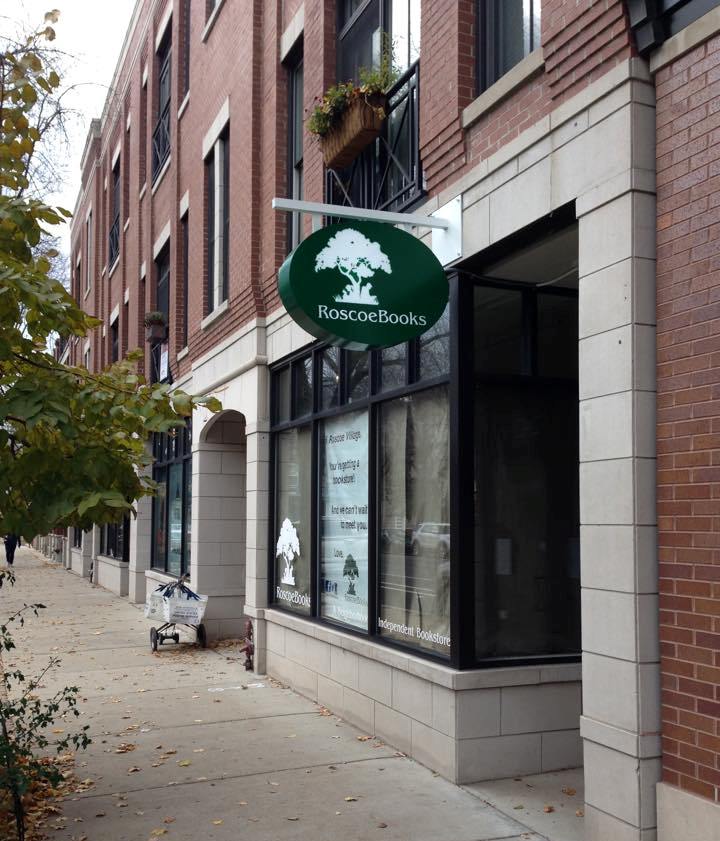 RoscoeBooks will open this Saturday in Chicago's Roscoe Village neighborhood as the "newest edition to its already celebrated repertoire of local boutiques, restaurants and shops," Chicagoist reported.
RoscoeBooks will open this Saturday in Chicago's Roscoe Village neighborhood as the "newest edition to its already celebrated repertoire of local boutiques, restaurants and shops," Chicagoist reported.
Owner and "official book lover in charge" Erika VanDam plans to cultivate a strong children's department at the store, where more than 30% of the inventory will be children's titles and the other 70% "a well-chosen and ever changing mix for adults," she said. "We're proud to join the small but vibrant handful of strong independent bookshops on the North Side."
And a note on the new bookshop's Facebook page proclaimed: "We couldn't be happier!"
Bonnie Slotnick Cookbooks is being forced out of its Greenwich Village location. Slotnick told Jeremiah's Vanishing New York: "I can't believe I'm turning into one of your sad stories, but I've just lost my lease. I have to be out by the end of January. I'm absolutely determined to find a place and move the shop (probably in the East Village, since nobody can afford the West Village anymore)."
Slotnick added that it was "possible that if I find the right person, I would consider sharing space--with another bookseller, an antiques dealer, a kitchenware shop. Maybe you'd be interested, or know someone who might?" Although she does not plan to initiate a petition to keep her space "because my landlord will not relent," she noted "some media coverage of this increasingly common and sad New York story would be welcome....
"Rest assured that I will find a space, you will find your way there, and I will make it as cozy and welcoming as the old shop. And if you've never been here, it will be even more exciting for you to make your first visit to my new, improved place."
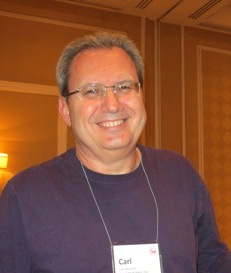 Carl Lennertz, publisher extraordinaire, most recently executive director of World Book Night U.S., author of a memoir and editor of two dozen published books, has set up his own venture, ExpressEdit. The service, which draws on his editorial, sales and marketing experience, aims to help writers polish the beginnings of their manuscripts, whether to catch the attention of literary agents or, if they're self-publishing, to attract readers.
Carl Lennertz, publisher extraordinaire, most recently executive director of World Book Night U.S., author of a memoir and editor of two dozen published books, has set up his own venture, ExpressEdit. The service, which draws on his editorial, sales and marketing experience, aims to help writers polish the beginnings of their manuscripts, whether to catch the attention of literary agents or, if they're self-publishing, to attract readers.
Lennertz explained: "What I have learned over the years: Without fail, the first 15 pages of the early draft of every manuscript I have ever read are full of small and big problems--and that they all are fixable! When the first pages are perfect, the trajectory of the book as you move on with your writing/rewriting can be lifted to a new level, as well as those opening pages now putting forth your work in the best possible light to a new reader."
For a $100 fee, he will "help in getting the first pages pitch perfect and then you can continue on from there with what you've learned." He will, he says, provide "detailed notes, corrections and suggestions. I will address plot trajectory and pace, voice and setting, and more, as well as supply a brief summary of additional thoughts for you."
Alice Lee, who "was well-known as the gatekeeper for her reclusive sister," To Kill a Mockingbird author Harper Lee, died Monday. She was 103. AL.com reported that Lee "was also celebrated as a trailblazer, one of the few women who practiced law in Alabama before World War II, and a church leader.... In 2012, at the age of 100, she was the oldest attorney still practicing law in Alabama."
"She told me she modeled her career on that of her father, Mr. Amasa Coleman Lee, who was of course the model of Atticus Finch," wrote author Mark Childress on Facebook. "I don't think there's any reason to feel sad about the end of a life so richly and completely lived."
---
Poet and publisher Michael Smith, who co-founded New Writers' Press to champion 1930s Irish poets, has died. He was 72. In addition to his own poetry, Smith's "work as a translator of Spanish and Latin American poetry won wide acclaim and earned him the European Academy Medal for distinguished work in translation in 2001," the Irish Times wrote. Sheila Pratschke, chair of the Arts Council said, "Ireland has lost a champion of poetry with the death of Michael Smith. His contribution as a poet, editor, translator and publisher has had a profound impact on the Irish and international literature world and his loss will be keenly felt."
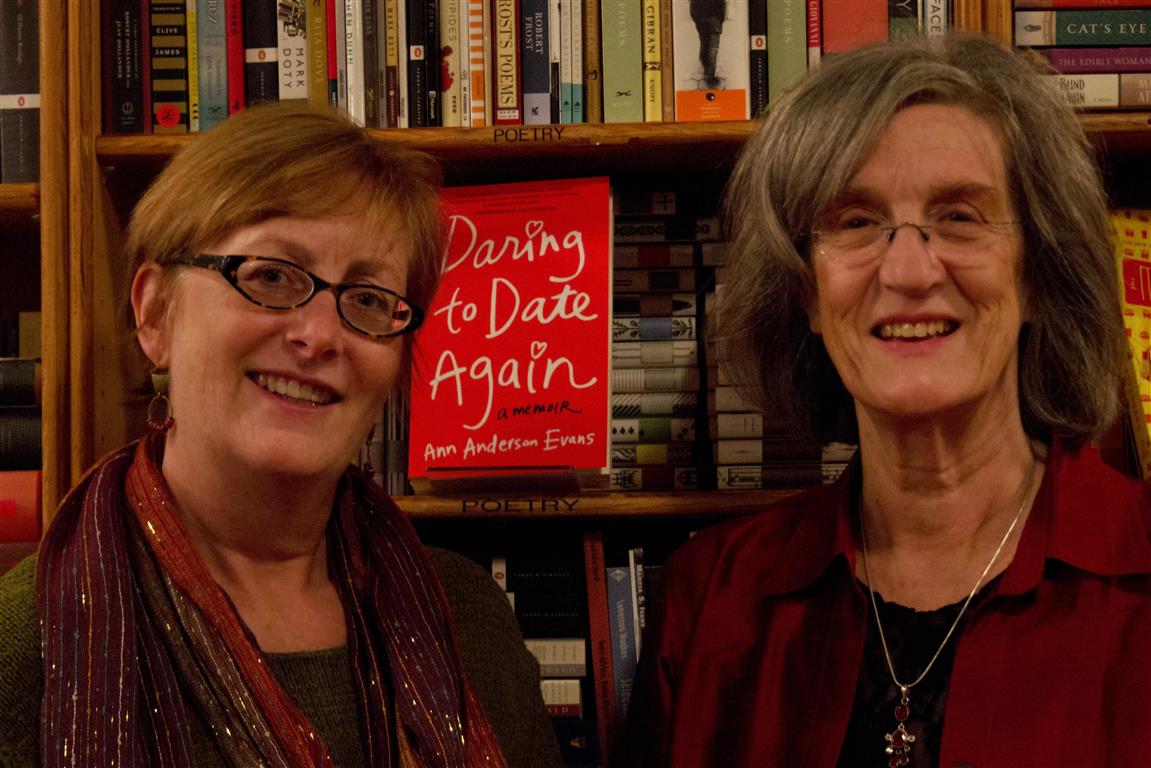 |
|
| photo: Lianne Schoenwiesner | |
 Cider Monday, which made its debut last year as an alternative to Cyber Monday, the day after Thanksgiving, is returning this December 1. Participating retailers will "offer shoppers a warm welcome and a cup of delicious cider."
Cider Monday, which made its debut last year as an alternative to Cyber Monday, the day after Thanksgiving, is returning this December 1. Participating retailers will "offer shoppers a warm welcome and a cup of delicious cider."
The incider of the holiday is again the Toadstool Bookshops in Keene, Milford and Peterborough, N.H. Toadstool's Willard Williams wrote in part:
"Locally owned stores everywhere are encouraged to join in. It's simple: be in your store that Monday to greet everyone with some cider and a heartfelt thanks for shopping locally. Last year several communities got involved in a town wide celebration and promoted shop hopping cider fans to sample the ciders at the various independents in town.
"Shoppers are promised cider, smiling servers that will not crash, personal service and advice, the opportunity to touch and try before adding to the cart (err... armful), no logins or passwords, payment in cash if desired, and always free freight. Simply take your purchases home with you, no charge."
Last year's Cider Monday was celebrated at a range of indie bookstores in New England, New York and Pennsylvania, who offered the required cider and in some cases, discounts, and received warm thanks--and a lot of media attention.

Ingram Publisher Services has added three client publishers, for which it is handling sales and distribution in the U.S. and Canada and POD services from Lightning Source:
Diversion Books, New York City, which has a list of 700 titles in areas that include romance, science fiction, mystery, suspense, business, sports, pop culture and history. Popular titles include Mark Cuban's How to Win at the Sport of Business and Greg Behrendt and Amiira Ruotola's It's Just a F**king Date.
Inkshares, which has used crowd-funding to select and fund its titles, which include The Cat's Pajamas by Daniel Wallace and Slim and the Beast by Samuel L. Barrantes. Inkshares is also using Ingram's CoreSource Plus.
AMPress, which was founded 15 years ago by mystery writer Archer Mayor and specializes in mystery. Ingram will begin with 18 recently resurrected titles from Mayor's Joe Gunther series.

Tomorrow morning on VH1's Big Morning Buzz: Brooke Shields, author of There Was a Little Girl: The Real Story of My Mother and Me (Dutton, $26.95, 9780525954842).
---
Tomorrow on Fresh Air: Richard Zoglin, author of Hope: Entertainer of the Century (Simon & Schuster, $30, 9781439140277).
---
Tomorrow on Charlie Rose: Norman Lear, author of Even This I Get to Experience (Penguin Press, $32.95, 9781594205729).
---
Tomorrow on the Talk: Andy Cohen, author of The Andy Cohen Diaries: A Deep Look at a Shallow Year (Holt, $26, 9781627792288). He will also appear on Conan.
---
Tomorrow night on the Late Show with David Letterman: Jessye Norman, author of Stand Up Straight and Sing! (Houghton Mifflin Harcourt, $27, 9780544003408).
---
Tomorrow night on Late Night with Seth Meyers: Russell Brand, author of The Pied Piper of Hamelin: Russell Brand's Trickster Tales (Atria, $19.99, 9781476791890).
 A reminder: Miami Book Fair International, which began on Sunday and hits its high point this coming weekend, is being livestreamed this year, courtesy of PBS and Detroit Public Television, on IndieBound.org, BookViewNow.org, PBS.org, PBSNewsHour.org, WNYC.org (including The Leonard Lopate Show) and any bookstore, publisher or author who wants to livestream or offer access to the material on demand after the fair. Live streaming runs 4-9 p.m. on Friday and 12-6 p.m. on Saturday and Sunday. (C-Span 2's Book TV is also broadcasting live from the fair.)
A reminder: Miami Book Fair International, which began on Sunday and hits its high point this coming weekend, is being livestreamed this year, courtesy of PBS and Detroit Public Television, on IndieBound.org, BookViewNow.org, PBS.org, PBSNewsHour.org, WNYC.org (including The Leonard Lopate Show) and any bookstore, publisher or author who wants to livestream or offer access to the material on demand after the fair. Live streaming runs 4-9 p.m. on Friday and 12-6 p.m. on Saturday and Sunday. (C-Span 2's Book TV is also broadcasting live from the fair.)
Special bonus: Shelf Awareness publisher Jenn Risko is speaking at the Critics in the Cloud panel discussion about "The State of Literary Critics in the Age of the Internet," which takes place on Saturday at 1:30 p.m. An interview with her and Stephen Elliott airs Friday at 5:06 p.m.
Concerning live streaming, Mitchell Kaplan, co-founder of the fair and owner of Books & Books, told Bookselling This Week: "The streaming video content--interviews, panel discussion and more--is free to embed for use by any bookstore website and we hope will help readers discover a great new book or author. If you're able, we hope you'll consider embedding the free player on your own sites, or simply share the links to the PBS.org player using your social channels or e-mail lists." (See BTW for details on how to add the material to a site.)
In the Miami Herald, Kaplan remembered the first year of the fair, which, now in its 31st iteration, is one of the oldest consumer book fairs in North America and has served as a template for so many other fairs. And in a separate piece, the Herald detailed this year's stunning array of events and new programs.
 There was a long and storied history of Stephen Colbert's "notable stance against Amazon" even before the "Colbert vs. Amazon feud hit a high this summer when the Amazon/Hachette price war affected Colbert's books," Salon noted in tracing the confrontation through a series of clips dating back to February 26, 2009.
There was a long and storied history of Stephen Colbert's "notable stance against Amazon" even before the "Colbert vs. Amazon feud hit a high this summer when the Amazon/Hachette price war affected Colbert's books," Salon noted in tracing the confrontation through a series of clips dating back to February 26, 2009.
When the Colbert Report's run ends, "first-time authors and independent bookstores could lose their champion, and Amazon could continue on unchecked on late-night television. (Who knows if Late Show Colbert will continue the fight against the giant?)," Salon wrote.
Six finalists have been announced for the Green Carnation Prize, which is presented "to LGBT writers for any form of the written word, and has a reputation of championing LGBT writers from the U.K." As a partner, Foyles is offering event space at its new flagship store in London to host the award ceremony November 28. The shortlisted Green Carnation Prize titles are:
All the Days and Nights by Niven Govinden
Thirst by Kerry Hudson
The Rental Heart & Other Fairytales by Kirsty Logan
Any Other Mouth by Anneliese Mackintosh
Unspeakable Things by Laurie Penny
Invisible Love by Eric-Emmanuel Schmitt
---
Longlists have been announced in eight categories for the 2014 800-CEO-READ Business Book Awards. The shortlists will be released in December, with the overall winner named in New York City in January.
---
The 15 finalists of the 2015 Pacific Northwest Book Awards, sponsored by the Pacific Northwest Booksellers Association, have been chosen by a committee of independent booksellers; the six winners will be announced in early January. The shortlist:
Loitering: New and Collected Essays by Charles D'Ambrosio (Tin House Books)
All the Light We Cannot See by Anthony Doerr (Scribner)
A Boat, a Whale & a Walrus: Menus and Stories by Renee Erickson (Sasquatch Books)
Burnt Toast Makes You Sing Good: A Memoir of Food and Love from an American Midwest Family by Kathleen Flinn (Viking)
Sex Criminals Volume One by Matt Fraction (Image Comics)
If Not for This by Pete Fromm (Red Hen Press)
Falling from Horses by Molly Gloss (Houghton Mifflin Harcourt)
My Fluorescent God: A Psychotherapist Confronts His Most Challenging Case--His Own by Joe Guppy (Booktrope Editions)
A Man Came Out of a Door in the Mountain by Adrianne Harun (Penguin Books)
The Sound of Letting Go by Stasia Ward Kehoe (Viking Children's Books)
Blood Will Out: The True Story of a Murder, a Mystery, and a Masquerade by Walter Kirn (Liveright)
Jackaby by William Ritter (Algonquin Young Readers)
Whiskey Tango Foxtrot by David Shafer (Mulholland Books)
The Free by Willy Vlautin (Harper Perennial)
The Strange and Beautiful Sorrows of Ava Lavender by Leslye Walton (Candlewick Press)
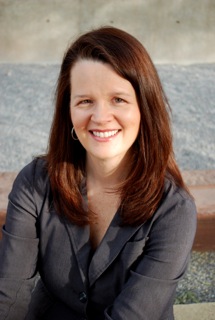 |
|
| photo: Cybele Knowles | |
Aurelie Sheehan is the author of two novels, History Lesson for Girls and The Anxiety of Everyday Objects, as well as two story collections, Jewelry Box: A Collection of Histories and Jack Kerouac Is Pregnant. Her work has been published in the Alaska Quarterly Review, Conjunctions, Epoch, Fairy Tale Review, Fence, New England Review, Ploughshares, the Southern Review and other journals. She has received a Pushcart Prize, a Camargo Fellowship, the Jack Kerouac Literary Award and an artist project grant from the Arizona Commission on the Arts. Sheehan is an associate professor of fiction at the University of Arizona in Tucson. Demigods on Speedway (University of Arizona Press, November 13, 2014) is a collection of linked stories set in Tucson.
On your nightstand now:
When Gabriel García Márquez died, I picked up One Hundred Years of Solitude again for the first time in about 25 years (of solitude). Yes, it holds up. The most exciting thing about it for me now is simply the texture of the lives he envisions--the texture of time. How we as writers or readers express or experience time is one of the most powerful elements in fiction, and he is beyond genius in this category. Also, I just finished We Are All Completely Beside Ourselves by Karen Joy Fowler. I was completely taken by this novel. I admired the heck out of the structure, and the sense of transparency--the depth and verisimilitude in the character and her voice--was really effective. The way we construct the narrative of our lives, the way we experience narrative and memory, is the essential shaper of this story. Next up: American Innovations by Rivka Galchen and the stories of Muriel Spark.
Favorite book when you were a child:
Russell Hoban's The Little Brute Family, then Nancy Drew in those young years, segueing into a dubious abyss that involved Jacqueline Susann's Valley of the Dolls and then got a little more highbrow again with Tom Wolfe's The Electric Kool-Aid Acid Test and William S. Burroughs's Naked Lunch. With those titles, you get a quick, tragic sense of how my childhood went wrong. Actually when I look at that trajectory, I see mystery everywhere, not just with Nancy Drew and her old clocks, hidden staircases and whatnot. What is the meaning of life? Tell me, tell me. That was the situation back then, as it is now.
Your top five favorite authors:
Five is so hard, but here are five authors who've had a lasting effect on me as a writer: Oscar Wilde, Marcel Proust, Clarice Lispector, Zadie Smith, Edward P. Jones.
Book you've faked reading:
Um, the Bible. In graduate school, I taught Humanities 101, and one of the texts was Genesis. I bought a Bible for the occasion. I read Genesis. But it seemed I should probably read the rest, too, so one hot summer afternoon I sat in my apartment and basically skimmed the entire Bible, fruit to nuts. It was like that cartoon series, 30-Seconds Bunnies Theatre, a very sped-up version indeed. I was mostly annoyed that in my version, Jesus's words were in red (which seemed typographically intrusive), and I was surprised by how long everyone seemed to live.
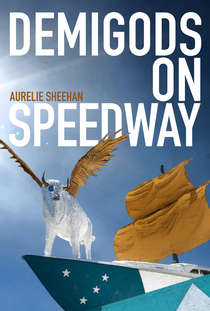 Book you're an evangelist for:
Book you're an evangelist for:
Probably it would be good to ask my students. I think I always find a reason to suggest they read Edward P. Jones, for instance. He is a master. But I also panic if someone hasn't read Lives of the Saints by Nancy Lemann. I love that book so much. It's the most beautiful voice, so funny. It's all about New Orleans and love and tragedy. This is the first sentence: "All in all Henry Laines' wedding was one of the worst events in my experience, tragic in society."
Book you've bought for the cover:
Cover and title count? I remember going to the Gotham Book Mart in New York City when I was in college, ready to try some new things. I bought How German Is It by Walter Abish. There is an odd man on an odd horse in the water on the cover. It's a black-and-white photograph (the classic New Directions look). I think I was going for intellectual avant-garde, or I might have been investigating the German part of me. I'm also partial to horses, especially odd, possibly ironic horses. The book is still out there--it won the 1981 Pen/Faulkner Award for Fiction.
Book that changed your life:
At Swim-Two-Birds by Flann O'Brien. This book is a hilarious, foolish, brilliant Irish masterpiece. My writing professor in college first suggested it. A coming-of-age novel, kind of, At Swim-Two-Birds is an immersion into the playfulness of language and the imagination. There is a lot of underage drinking. It was one of my first encounters with fiction that's intensely engaging as story but also aware of itself as artifice.
Favorite line from a book:
Let's just say there are a lot of cool passages in One Hundred Years of Solitude, but last night I read and loved this: "[Úrsula] knew with so much certainty the location of everything that she herself forgot that she was blind at times. On one occasion Fernanda had the whole house upset because she had lost her wedding ring, and Úrsula found it on a shelf in the children's bedroom. Quite simply, while the others were going carelessly all about, she watched them with her four senses so that they never took her by surprise, and after some time she discovered that every member of the family, without realizing it, repeated the same path every day, the same actions, and almost repeated the same words at the same hour. Only when they deviated from meticulous routine did they run the risk of losing something."
Book you most want to read again for the first time:
The Remains of the Day by Kazuo Ishiguro. I was stunned by this book when I first read it. It's one of those situations where you have no idea quite how dark the clouds are getting, how deeply invested you are in a character, until the end, when it dawns on you, and you are slain.
The Honest Truth by Dan Gemeinhart (Scholastic Press, $16.99 hardcover, 240p., ages 8-12, 9780545665735, January 27, 2015)
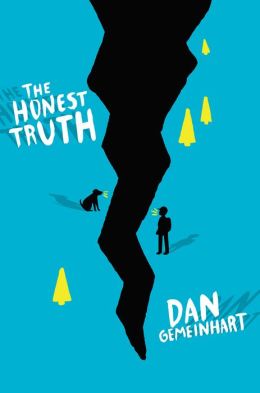
The last thing Mark suffers from is self-pity. Readers discover early on that he was diagnosed with cancer at age five, that it went into remission, and now it's back. His best friend, Jessica Rodriguez, has stuck by him through it all, and this platonic, enduring friendship at the center of the story buoys both Mark and readers. Mark's first-person narrative alternates with the third-person account from Jessie's perspective.
"The mountain was calling me," Mark begins. "I had to run away." At first, readers don't know how urgent Mark's quest is. He packs up his spotted dog, Beau, and some supplies and heads to the station. He buys two tickets from Wenatchee, Wash., to Spokane as a decoy, then walks around the corner to the train platform and waits for the one bound for Seattle.
Mark smashes his grandfather's pocket watch ("Tick. Tick. Tick. Time, running out"). They were supposed to make this trip together, but just as Mark started feeling better, his grandfather got sick. Now it was up to Mark to complete their dream. Gemeinhart puts forth no romantic notions of going it alone: Mark gets beaten up and robbed, sleeps on the streets and gets kicked off a bus on which he stows away. And all along his illness drags him down ("the headache was gnawing on my brain with rusty razor teeth"). But strangers also show him kindness along his journey, Beau's loyalty remains unshakable, and Mark's determination keeps him going.
Readers may feel as much empathy for Jessie as they do Mark. Throughout their friendship, they've written haiku to each other, leaving the poems tucked in secret places known only to them. Jessie is the only one who knows where Mark may be headed, and as Mark's parents start to unravel and a storm threatens, Jessie is faced with a dilemma: Does she keep her friend's secret, or aid in a rescue he may not want? ("What should a friend do?/ How to help, when helping and/ hurting are the same?" she writes.)
Gemeinhart makes each step up the seemingly unscalable mountain feel authentic. Give this to fans of Gary Paulsen's Hatchet for its boy (and dog) against nature plot line. --Jennifer M. Brown, children's editor, Shelf Awareness
Shelf Talker: For fans of Gary Paulsen's Hatchet, this debut novel featuring boy (and dog) against nature will have readers at the edge of their seats.